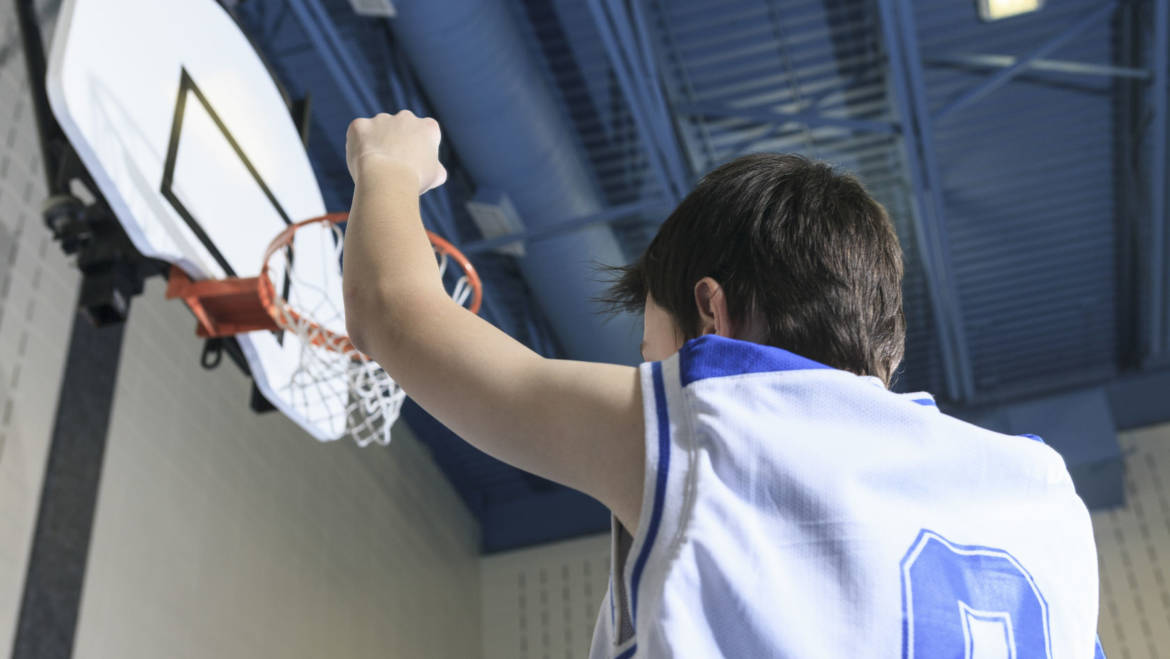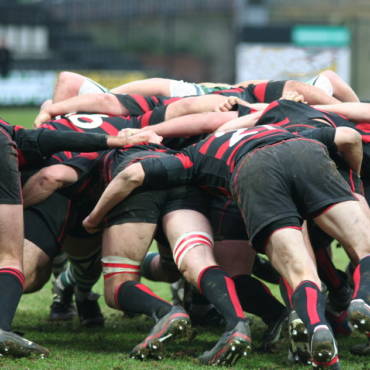Every coach, every athlete, every media commentator and every fan will tell you that the fundamental element of all sports is skill.
Kicking and passing in football.
Throwing and catching in cricket and baseball.
Diving, turning and finishing in swimming.
Tackling and passing in rugby and rugby league.
Passing and shooting in basketball and netball.
Learning, practicing and mastering the basic skills of sport is one of the foundations of coaching, sports performance and athletic training.
However, just learning a sports skill is only the first step in the process. Only fools believe that “Practice Makes Perfect” if the goal is to win in competition.
Athletes do not fail because their skill level is poor: they fail because their ability to perform the skill in competition conditions is poor and that’s a coaching issue.
There are 7 Skills Steps You Must Master in Every Sport to be successful.
So what is Sports Skill?
There’s always a “definition” nut out there: someone who has to read a definition of something before they will engage with it.
So to keep all you definition devotees happy, “skill” for the purpose of this article, is defined as:
“The ability to perform a sporting skill consistently well at speed, under fatigue and pressure conditions in a competition environment“.
People drone on and on and on about skills in sport.
“It’s all about the fundamentals” some say.
Others insist, “Skills are everything”.
Hard to disagree but……there is a huge difference between learning a skill and learning to perform the skill consistently well at speed, when you are fatigued, under pressure and trying to execute the skill in front of thousands of people.
The Technically Perfect Sports Skills Myth.
One of the greatest myths in sport is the “Technically Perfect Skill” myth. You know the myth you learnt from a biomechanics professor or you heard from a coach at a course or you read about in a textbook that said something like “you must coach the athlete until they have mastered every element of technique X perfectly”.
Whilst you should pursue excellence in technique and strive to continuously improve an athletes skills, it is ridiculous to try to coach every athlete you coach to achieve the myth of technical perfection.
“Textbook” perfect is just that – perfect for still images in textbooks. When your athletes can win medals and win football games by looking good on page 147 of a text-book then by all means try to make them look textbook perfect.
But if you want them to win in the real word – coaching sports skills is so much more than looking perfect. Your athletes need to be able to execute sports skills in performance situations – and that means a re-think of the way you coach skills.
Performance Practice: Train the Way You Want to Perform.
Want to learn and master a basic sports skill? Find a coach, learn how to do it then practice, practice, practice.
Want to learn and master a basic sports skill so that you can enhance your performance under competitions conditions….then practice, practice, practice will not cut it: you need Performance Practice.
Performance Practice is a logical, systematic 7 Step process that takes athletes from the execution of the basic skill to being able to perform it under competition conditions.
The 7 Skills Steps of Performance Practice:
Sports Skills Step 1: Perform the Skill. This is the first, and unfortunately for most athletes, the last step in their skills learning program. Coaches come up with a drill, athletes copy it, try it, learn it.
Sports Skills Step 2: Perform the Skill very well. Skills mastery comes from regular practice combined with quality feedback from coaches and may incorporate the use of video and other performance analysis technologies – including the best one of all…the coach’s eye!
It is about here that most coaches stop coaching the skill, believing that if the athlete can perform the skill really well, and it looks like it does in the coaching textbooks then they have done their job.
Wrong.
The job is not even 30% complete.
Sports Skills Step 3: Perform the Skill very well and at speed. Name one sport where the ability to perform sports skills really slow is a winning strategy! Technical perfection at slow speed may look great for the text books, but unless the skill can withstand competition level speed (and included in that is competition accelerations, competition agility requirements and competition explosiveness) then it is not competition ready.
Looking technically perfect at slow speed is great for the cameras but it is even better for your opposition who will have run around you and scored while you are receiving accolades for winning the “best-skills execution” competition.
Sports Skills Step 4: Perform the Skill very well, at speed and under fatigue. Think of the “danger zones” in all competition sport. The last 20 metres of a 100 metres freestyle. The last 5 minutes before half time in football. The last play in the game. Many, many competitions come down to the quality of skills execution during the last 5% of time and being able to perform fundamental skills when tired, dehydrated, glycogen depleted and suffering from neuro-muscular fatigue is a winning edge in all sports.
Sports Skills Step 5: Perform the Skill very well, at speed, under fatigue and under pressure. How many times do you see athletes miss simple targets or drop balls or make errors at critical moments – “danger-zones” in competitions? There is no doubt that emotional stress and mental pressure impact on the ability of athletes to perform skills with quality and accuracy – (read more about the emerging field of “psycho-physiology!!”). But….this is a coaching issue. Incorporate the element of pressure in skills practices in training and ensure that training is more challenging and more demanding than the competition environment you are preparing for.
Sports Skills Step 6: Perform the Skill very well, at speed, under fatigue and under pressure consistently. Being able to perform the skill under competition conditions once could be luck, but being able to do it consistently under competition conditions is the sign of a real champion. Consistency in skills execution in competition comes from consistency of training standards. Adopting a “no-compromise” approach to the quality of skills execution at training is a sure way to develop a consistent quality of skills execution in competition conditions. Unfortunately many athletes have two brains:
- Training brain– the “brain” they use in training and preparation. This “brain” accepts laziness, inaccuracy, sloppiness and poor skills execution believing that “it will be OK on the day” and everything will somehow magically be right at the competition;
- Competition brain – the “brain” they use in competition.
The secret to competition success is to use “competition brain” in every training session.
Sports Skills Step 7: Perform the Skill very well, at speed, under fatigue and under pressure consistently in competition conditions. This is what it is all about. The real factor in what makes a champion athlete is their capacity to perform consistently in competition conditions.
Performing a basic skill well is not difficult. But add the fatigue of 75 minutes of competition, the pressure of knowing the whole season is on the line with one kick, the expectations of the Board, the coach, the management, team-mates and tens of thousands of fans and all of sudden that basic skill is not so basic: it becomes the equivalent of juggling six sticks of dynamite.
Practice does not make Perfect:
In the old days, people would say, “Practice Makes Perfect”. We now know that is rubbish.
Some people moved on and said, “Perfect Practice Makes Perfect”. That philosophy is only true if the goal is to perform skills well for the textbooks.
The real issue now is “Performance Practice Makes for Perfect Performance”.
Practice consistently under the conditions to be experienced in competition and success will follow.
Summary:
- Just learning and mastering sports skills is not enough: it is no longer “Practice Makes Perfect” or “Perfect Practice Makes Perfect”;
- Coaches and athletes must spend as much time, energy and effort learning to perform the fundamental skills of their sport in competition conditions as they do to learning and mastering the basic skill;
- Coaches should progress athletes systematically through the 7 skills steps to ensure they can perform fundamental sports skills in competition conditions: to do less is to rely on luck, the bounce of the ball and some good fortune – none of which are strategies for consistent success.
Wayne Goldsmith




4 Comments
Hi Wayne,
good reminder thanks. I defintely think there is a place for practicing skills under fatigued situations. I use a 10 minute “emptying the tank” warm up sometimes to get the players tired, then we learn the new skill and rehearse it.
I worked with a coach that used the phrase “skill is technique performed under pressure.”
Thanks James.
My first ever presentation in sport was in 1990 at a coaching conference in Australia.
The topic was T.U.F. – Technique Under Fatigue and even as an undergraduate I believed passionately that being tough “TUF” in sports competition meant being able to maintain technical excellence in fatigue conditions – which meant practicing technical excellence under fatigue in training.
20 years later I am only more convinced that this is a great strategy for coaches to employ for competition success: Train “TUF” to be competition tough!
Thanks,
WG
You can’t hope to practice the skill well at speed unless you can perform the skill well in the first place. I think too often athletes try to do too much too fast to try to “look good” in front of their team/coaches. The problem is, unless you have a solid foundation you’ll never get to the next step. Each level builds on itself.
Thanks Jodi.
I agree with you to a point, however, I think where sport is changing is that we are shifting from sticking religiously to the old “must get the skill 100% right” philosophy to “let’s teach you how to use the skill effectively” model. I believe too many coaches still promote the mindless repetition model of skills learning which is completely out of step with the way kids want to learn and be engaged. I am not saying “sell-out” – I still believe the secret to success in sport is to work harder, more often than anyone else – but as coaches we have to be smarter in the way we teach skills.
Thanks again for your excellent comments.
WG
Comments are closed.